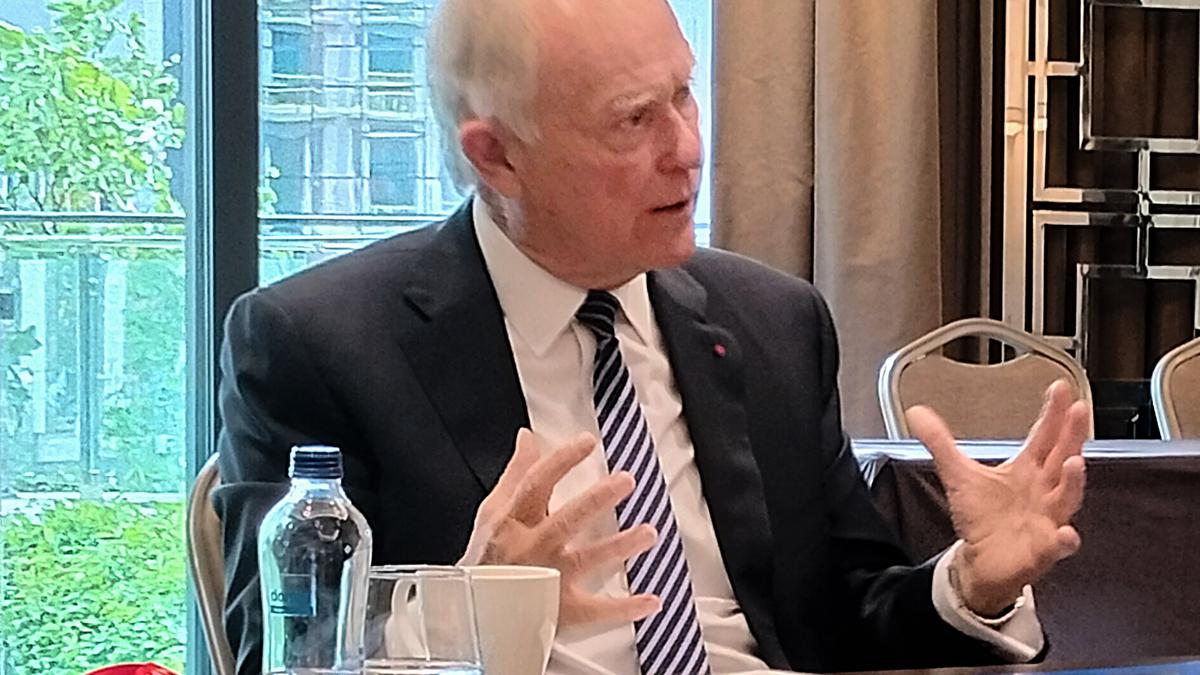AI can’t curtail rights of foreign airlines if it wants to expand international ops: Emirates

Emirates Airline President Tim Clark speaks during a media briefing in Istanbul, Turkiye, on June 6, 2023.
| Photo Credit: PTI
If Air India wants to expand its presence in foreign countries, it can’t curtail the rights of airlines from those countries to fly into India, cautioned Emirates Airline President Tim Clark.
“If Air India wants to expand, it can’t curtail the rights of foreign carriers from the countries that it wishes to expand into,” Mr. Clark said at a media briefing on the sidelines of IATA World Air Transport Summit in Istanbul.
The remark was in response to Air India CEO Campbell Wilson’s comments to The Hindu in an interview on April 20 that “India must not open the floodgates” for foreign carriers as it was in its “national interest” to allow the Tata Sons-owned airline to provide non-stop flights on long-haul international routes because it had placed a massive order of 470 aircraft. Dubai, where Emirates is headquartered, has demanded a revision of the air service agreement signed with India in 2014 such that the 66,000 seats permitted to the airlines of the two jurisdictions be topped up by another 50,000 seats. But India has indicated that it has no intent yet to accede to this demand.
He also said that the Indian government also declined the US carrier United’s permission to codeshare with Emirates. “The new government [is] staunchly opposed to anything other than the [aircraft] seats coming out of Dubai being increased.”
As a result of India’s reluctance, its “tourism and all that accompanies it is compromised by an access policy” which “doesn’t do them any favours” given that it comes at a time when India is the fastest growing economy with GDP growth of 8% to 9% and is the most populous country in the world.
Mr. Clark’s comments echo what the Director General of International Air Transport Association, Willi Walsh, had said about how Indian airlines that want to expand their network in foreign countries may suffer as “other countries may restrict capacity as well.”
The European Union too has demanded that India implement its Open Skies Policy for countries within the 5,000 km radius in letter and spirit and revise the bilateral air agreements signed with 26 States that cap the number of seats. It also wants a common agreement with the entire EU, particularly concerned over the direct. The international pressures on India also coincide with Air India’s aggressive international expansion where weekly flights have increased by 63%, a large chunk of which have gone to the US and Europe.
The CEO of IndiGo, which too is learnt to be keen on more reciprocal seats into Dubai, Pieter Elbers said that bilaterals require “a tailor-made approach” and that there can’t be a blanket opening or closing of bilateral rights. He also said that they should be determined by growth in traffic demand. “We are recovering so quickly out of Covid, and today we are well above pre-Covid level, and that will also automatically drive these discussions,” Mr. Elbers said.
[The reporter was in Istanbul at the invitation of IATA]
For all the latest business News Click Here

